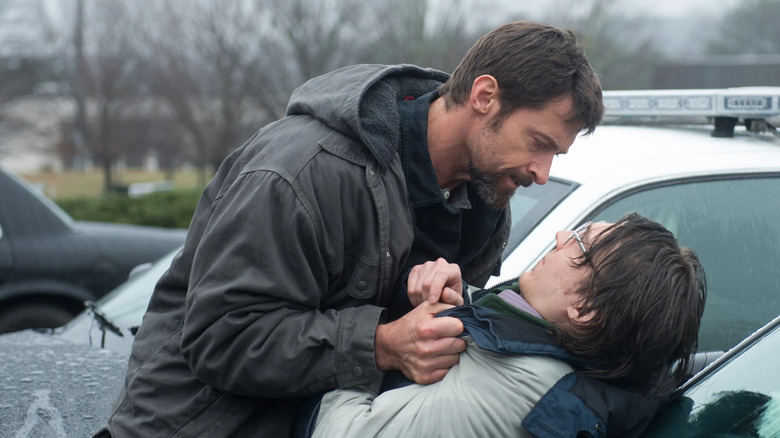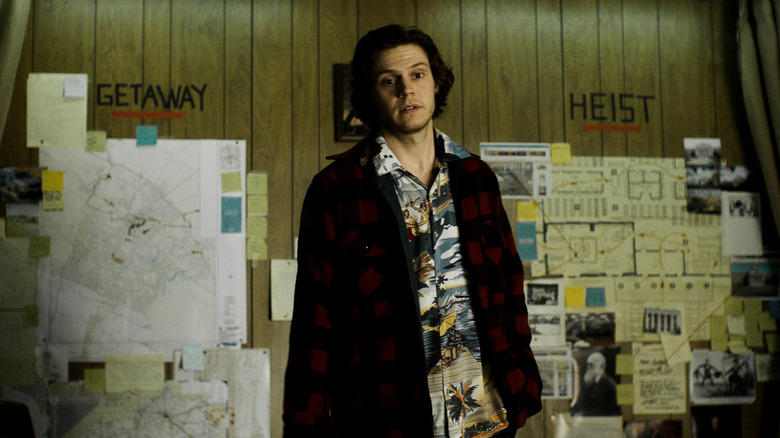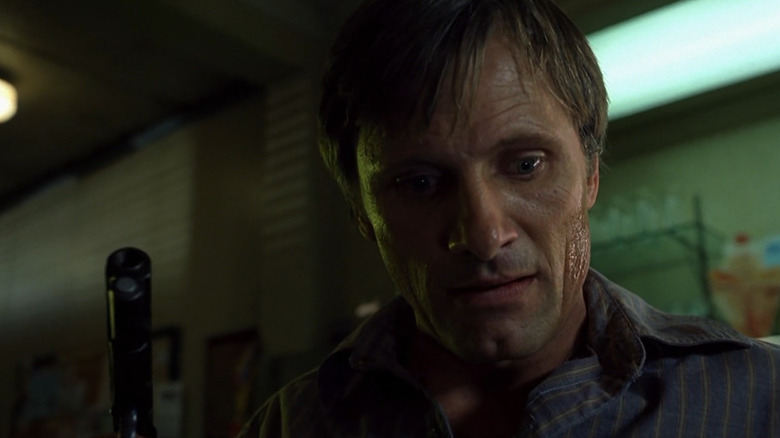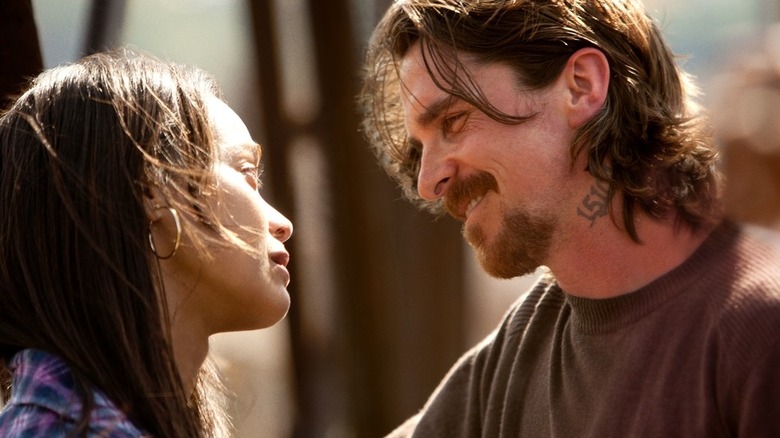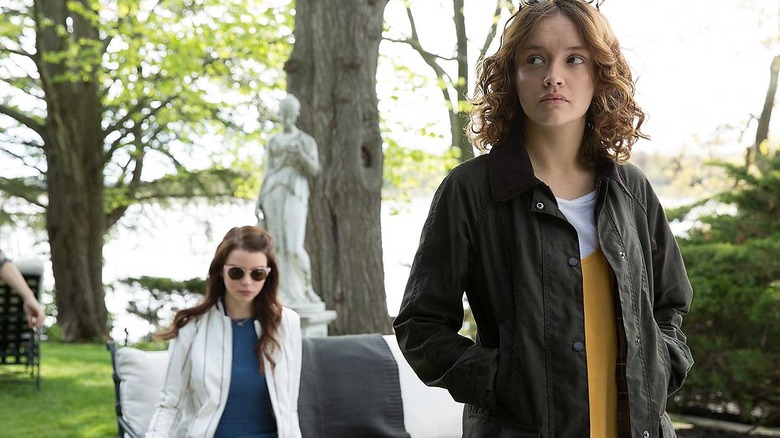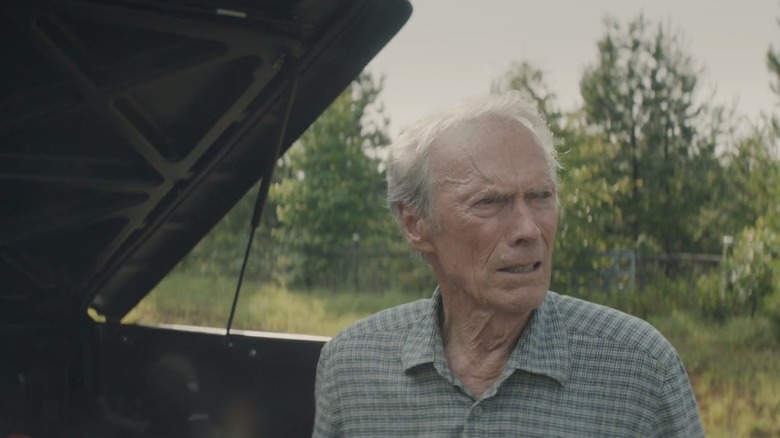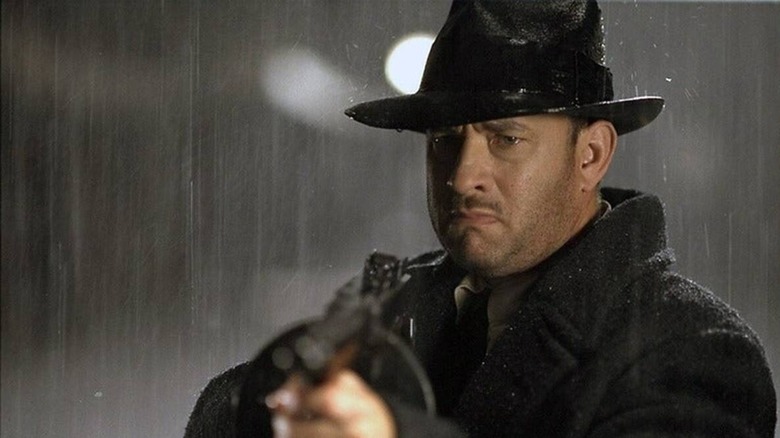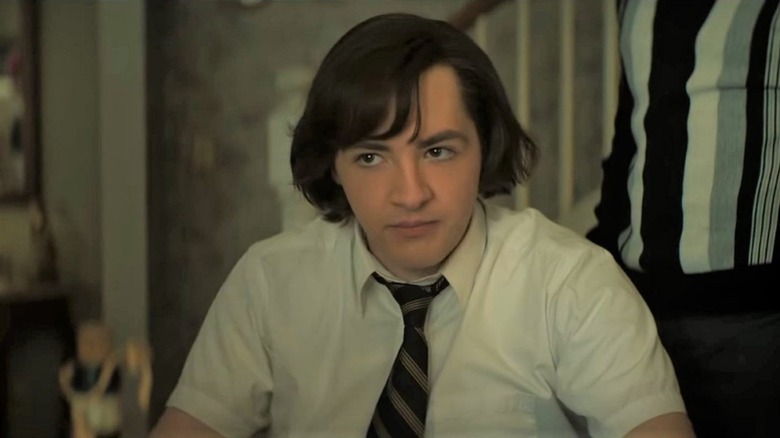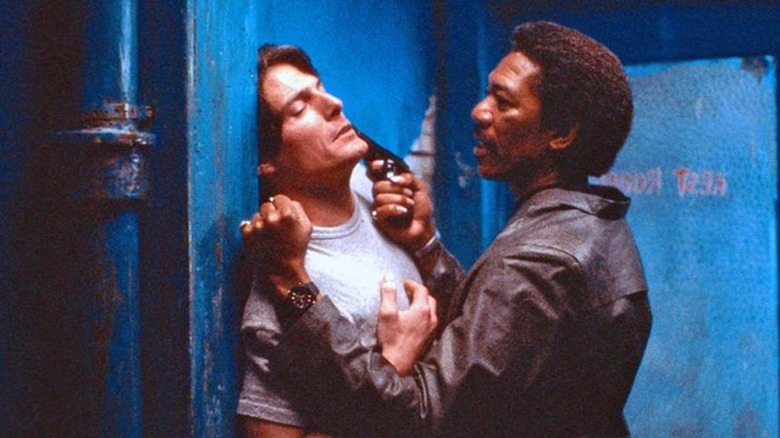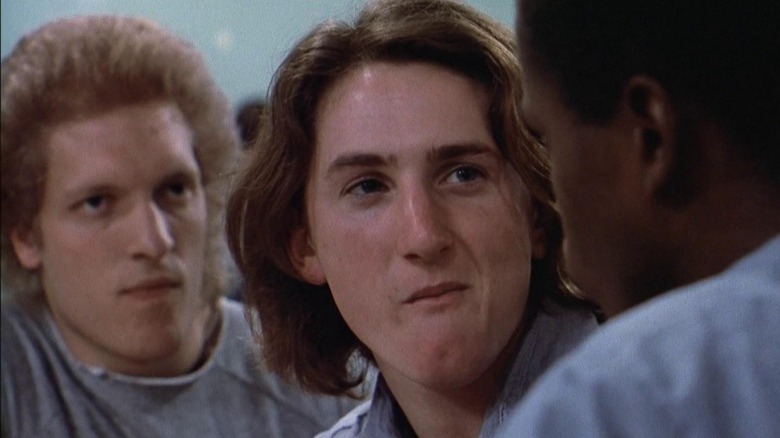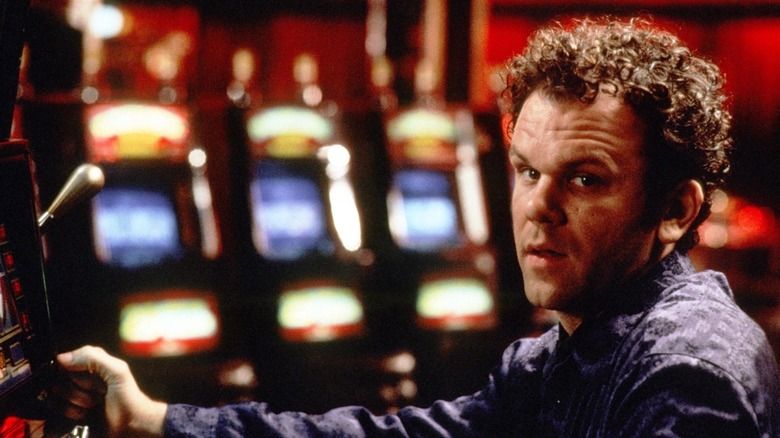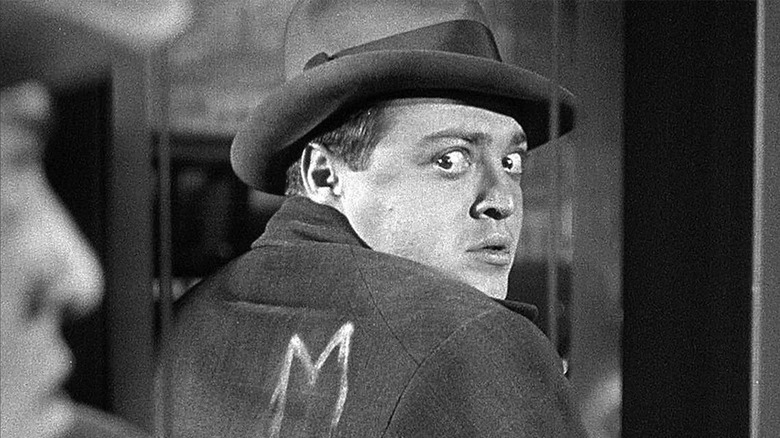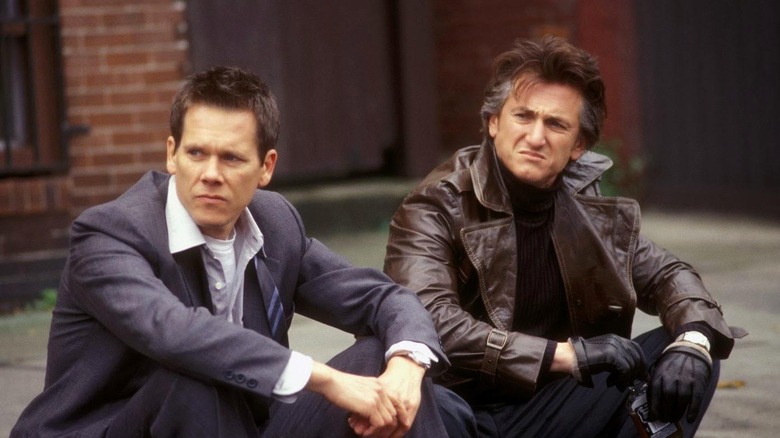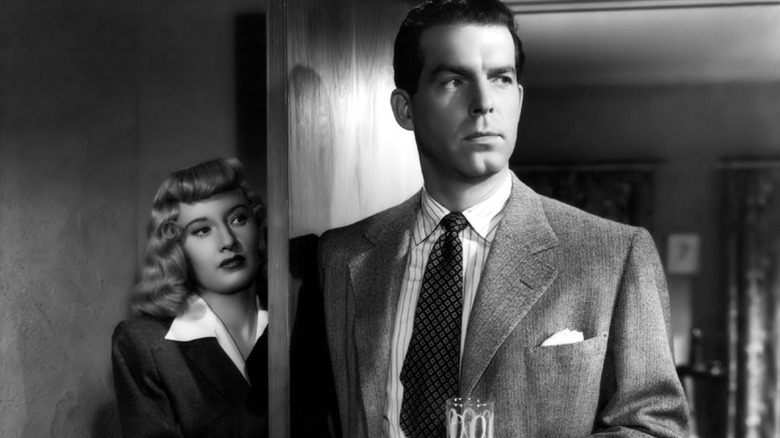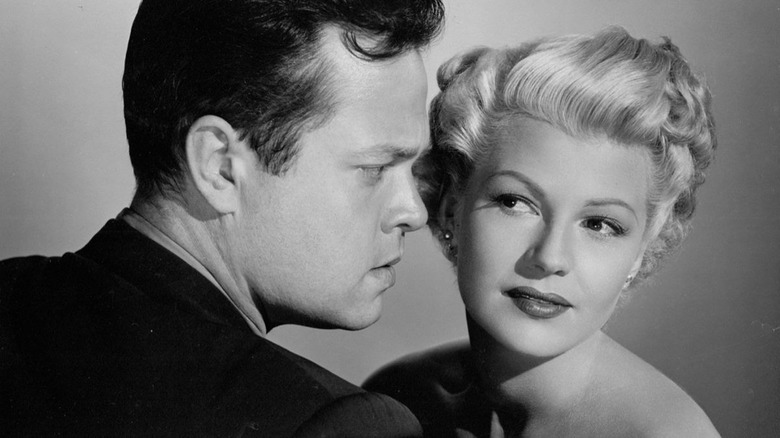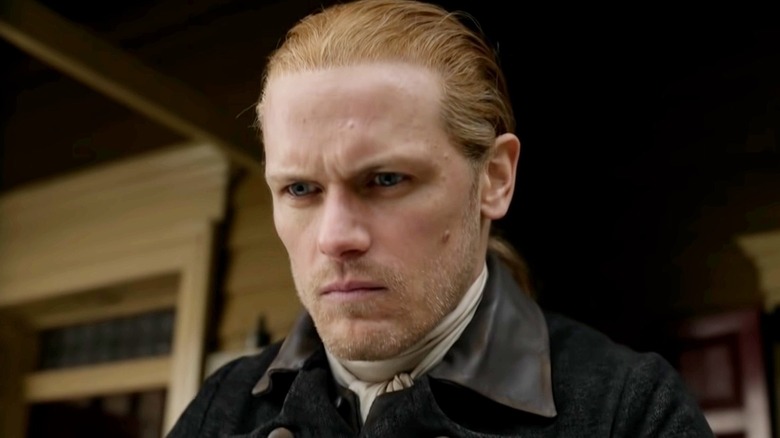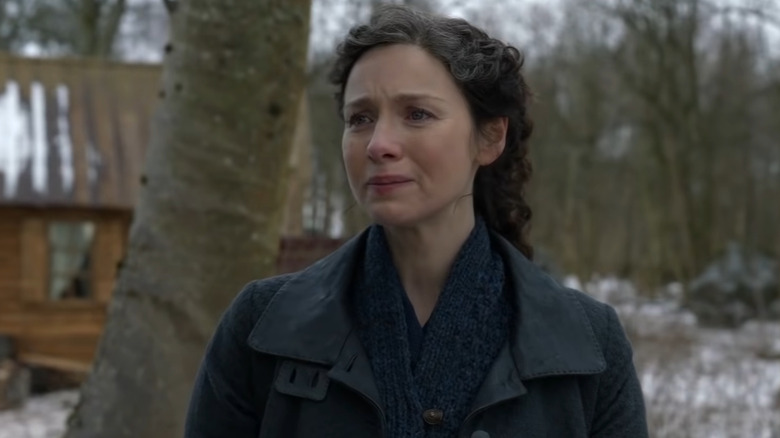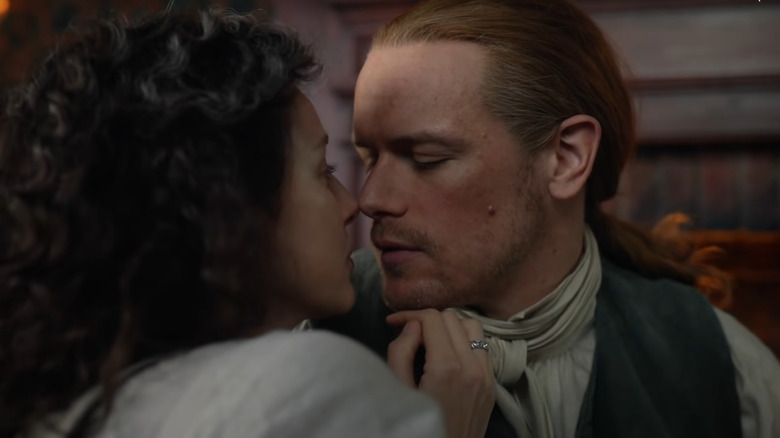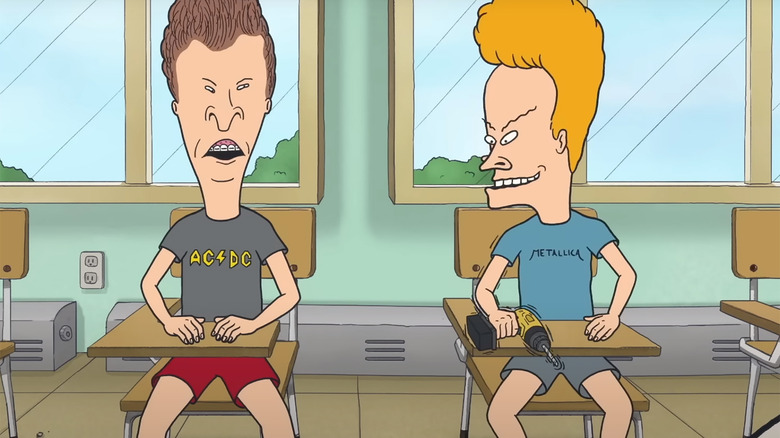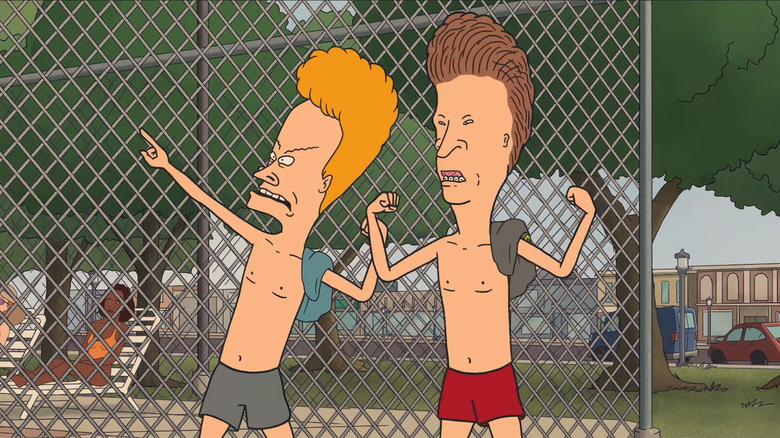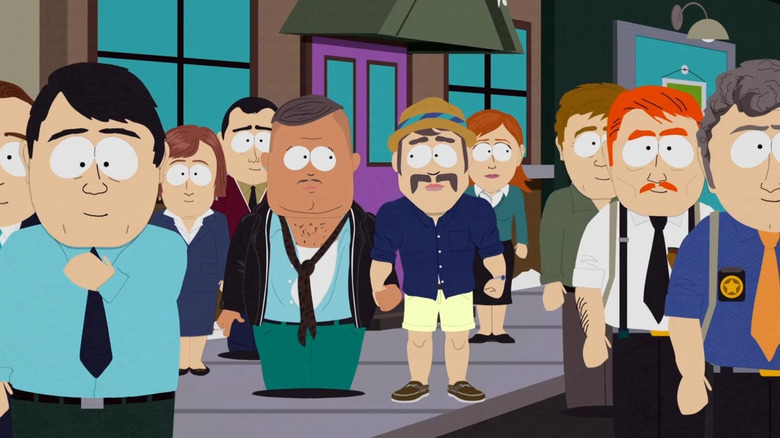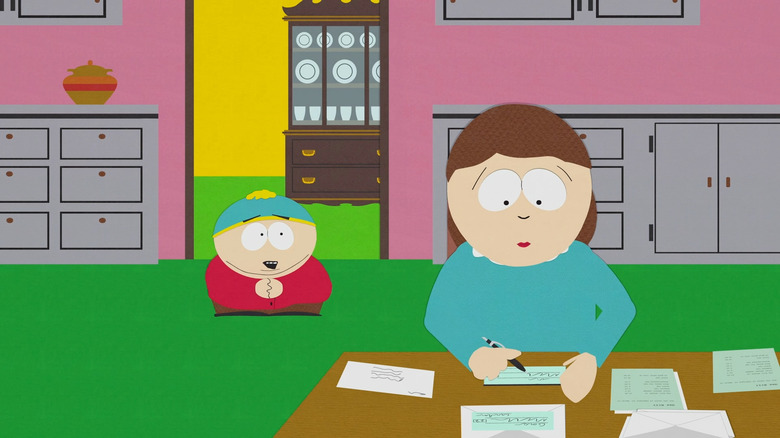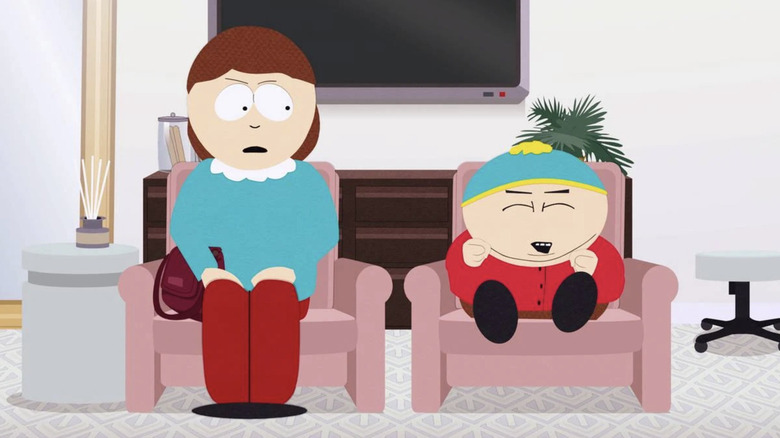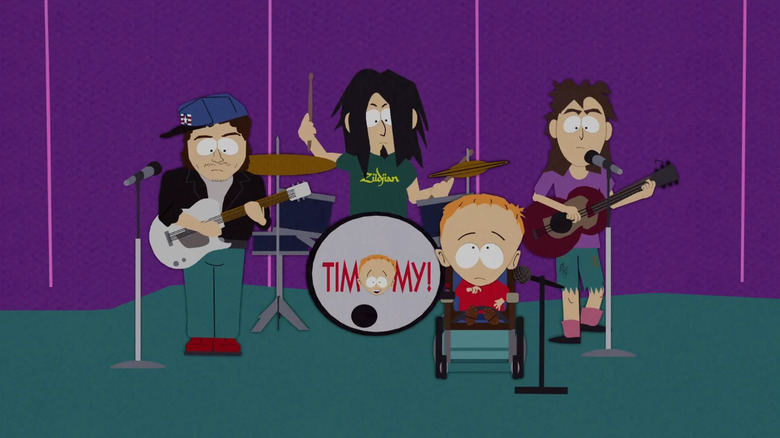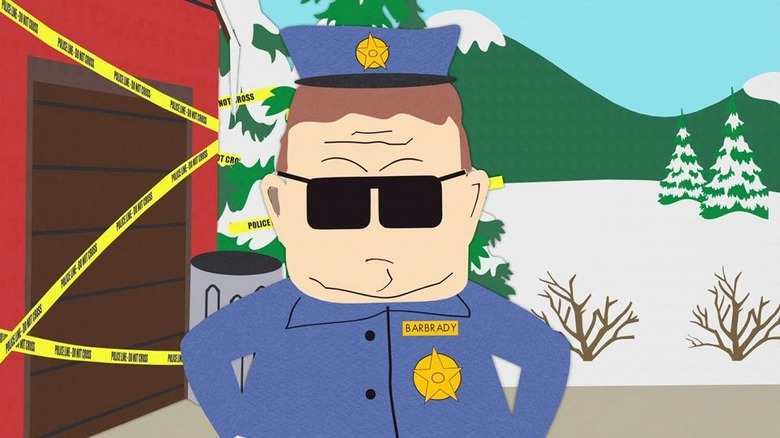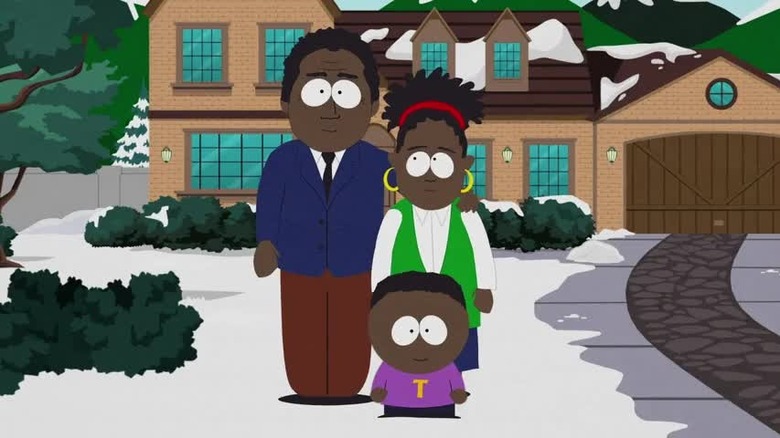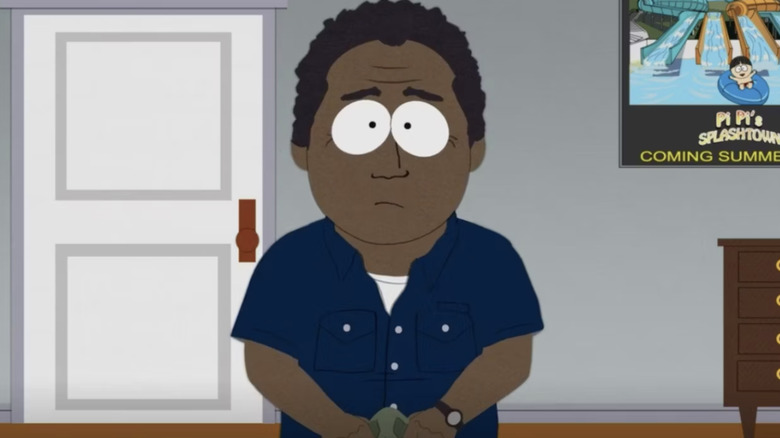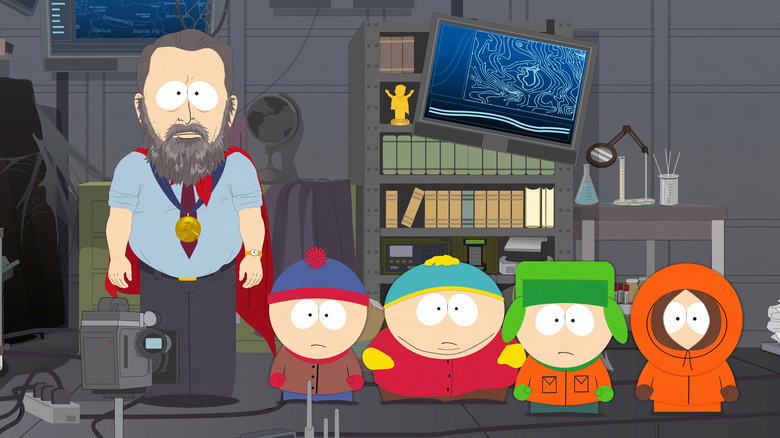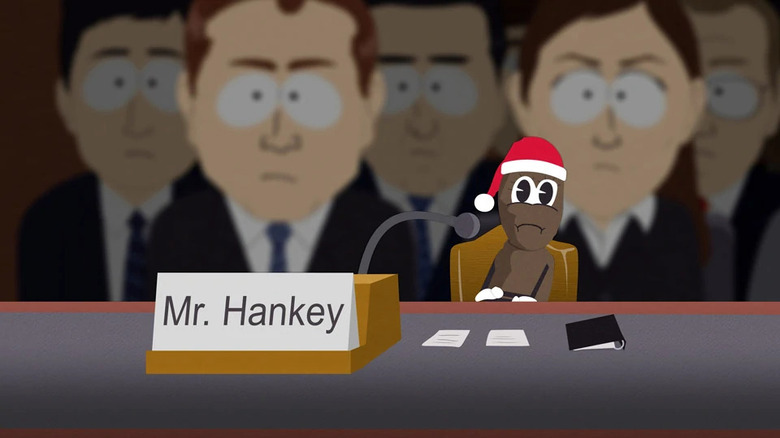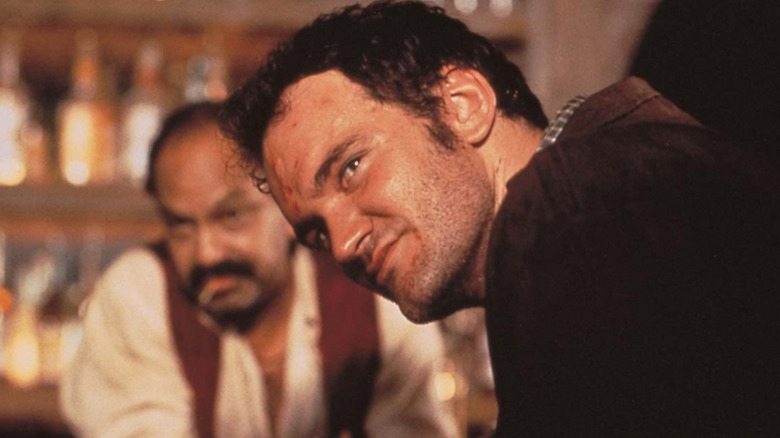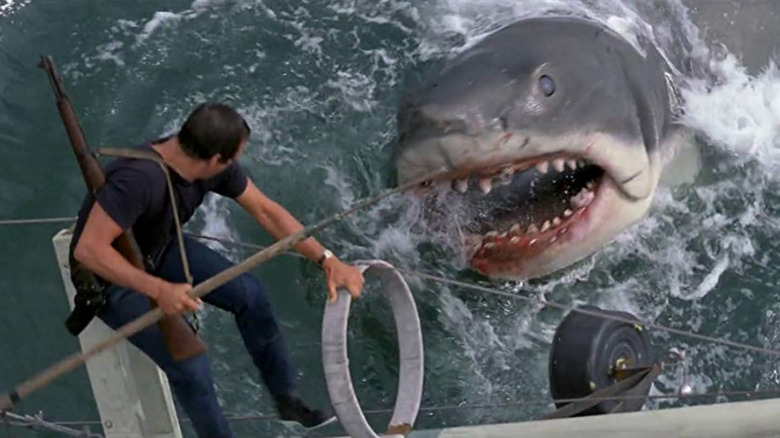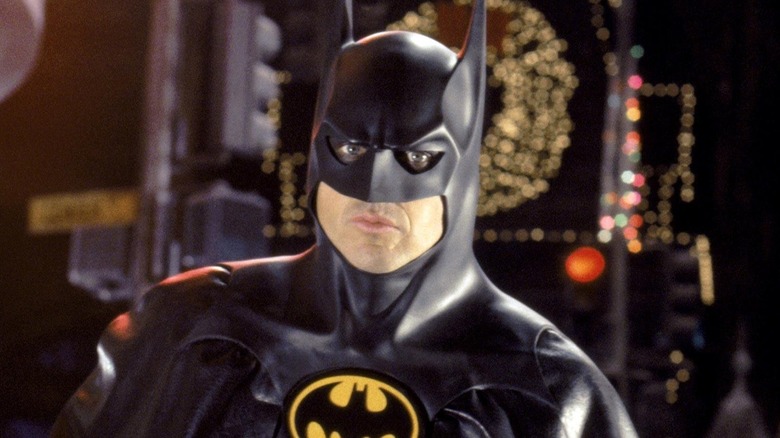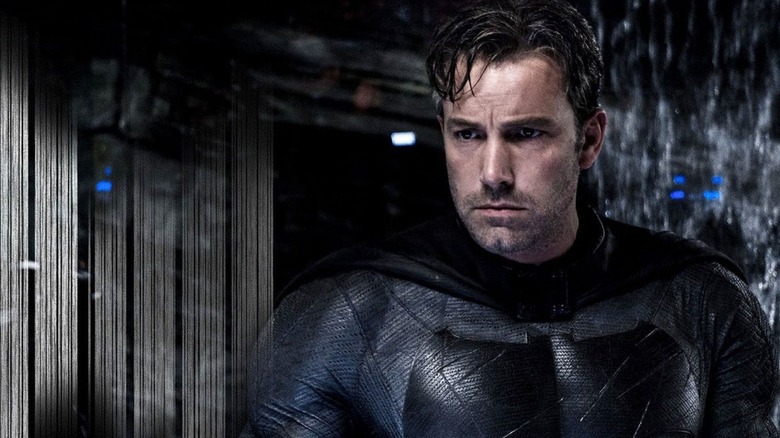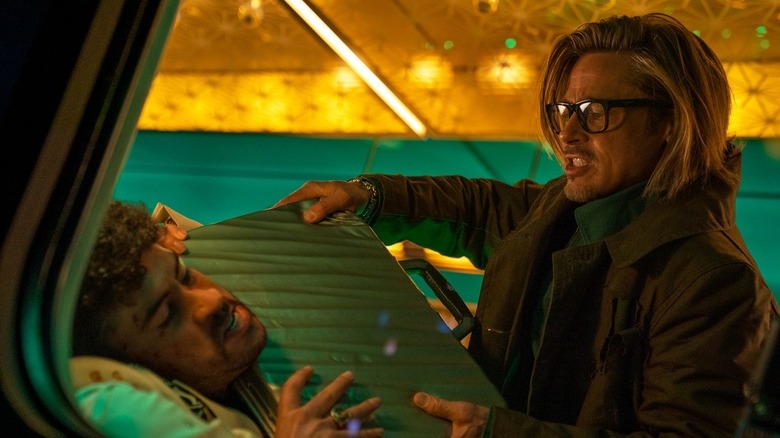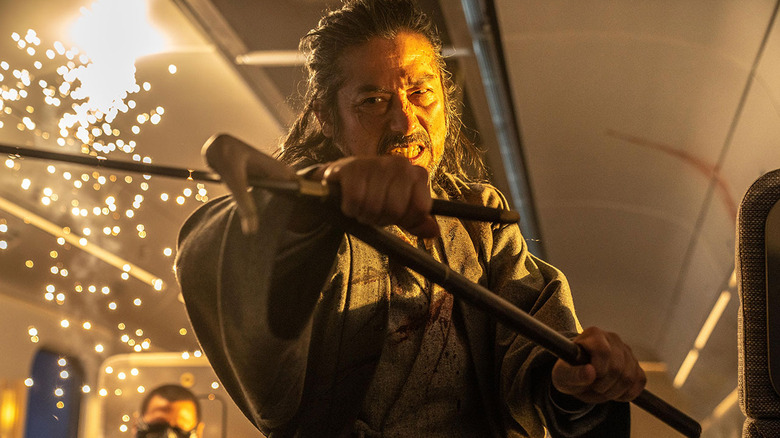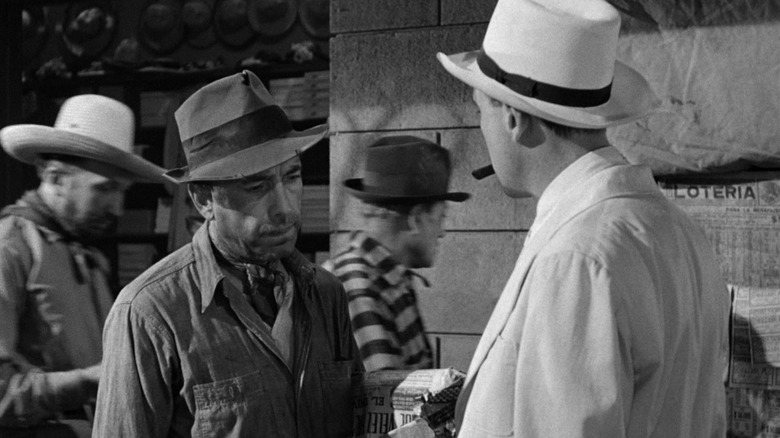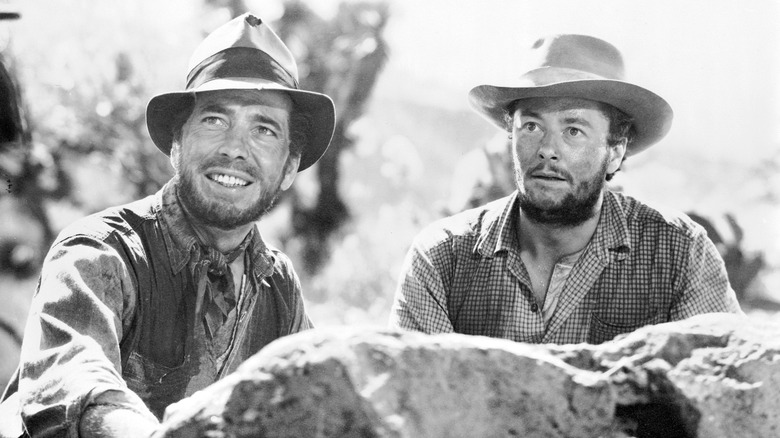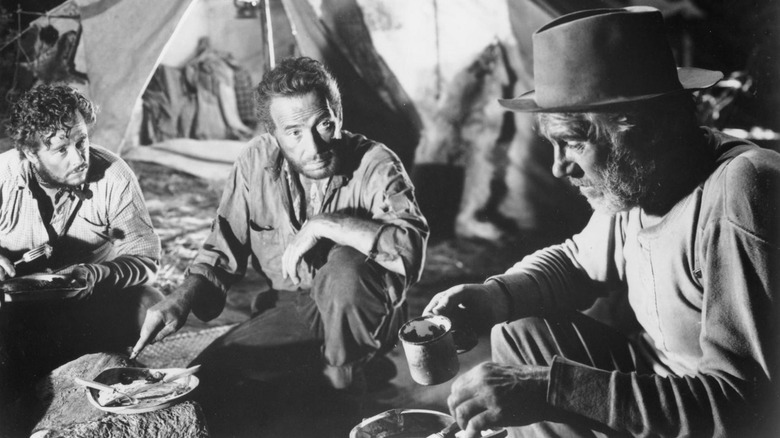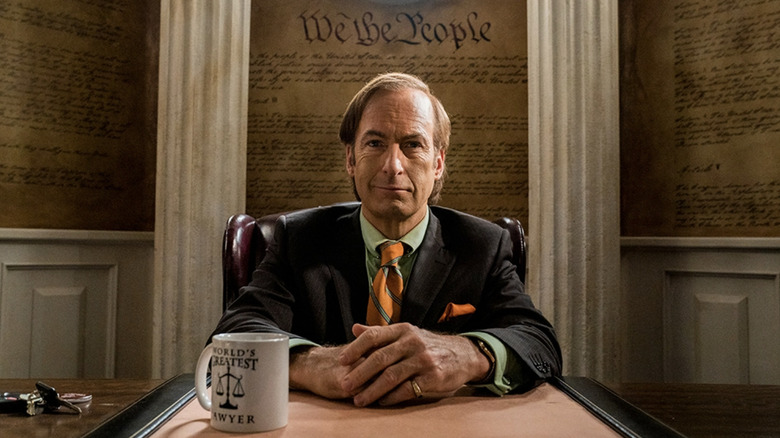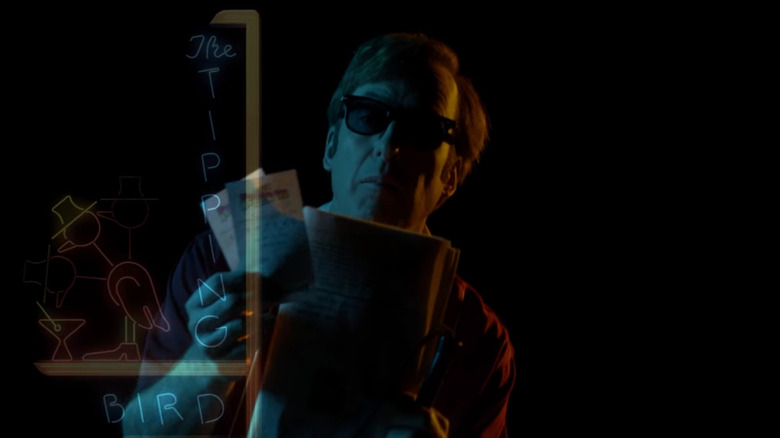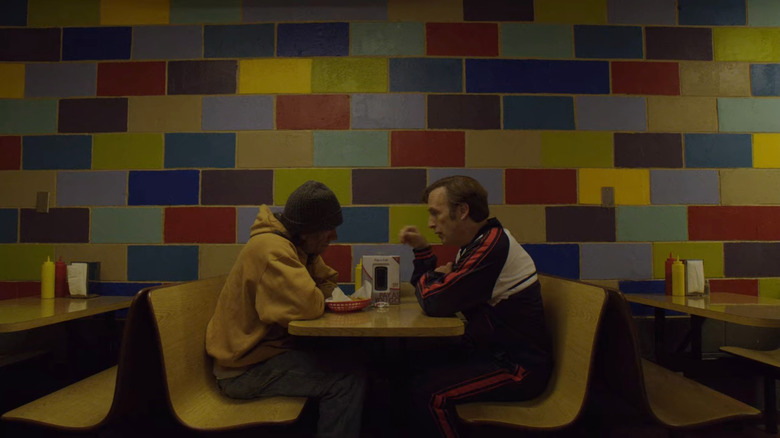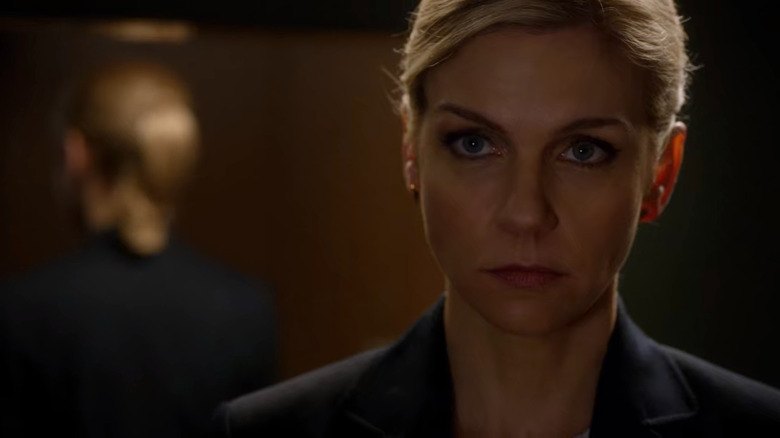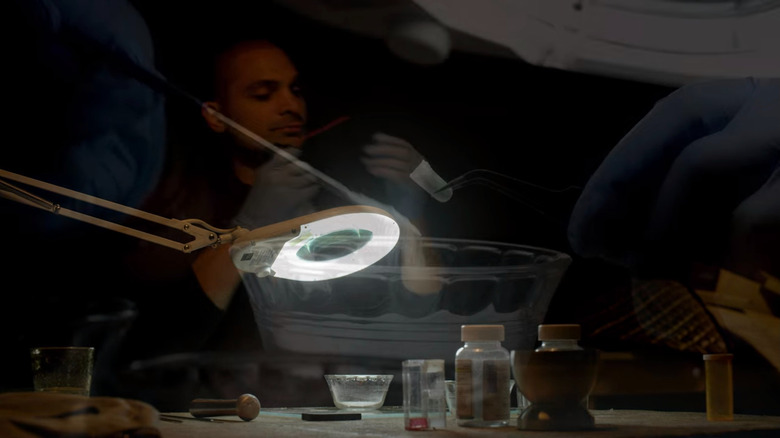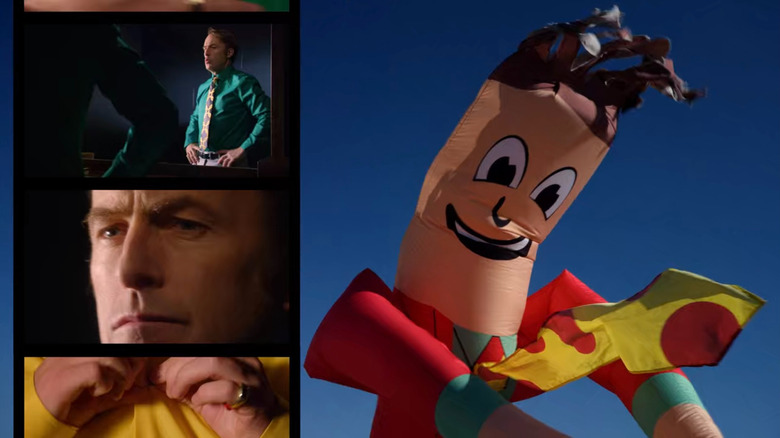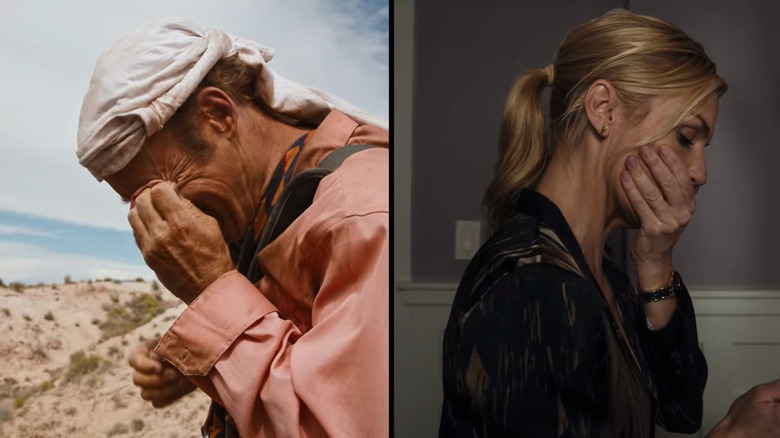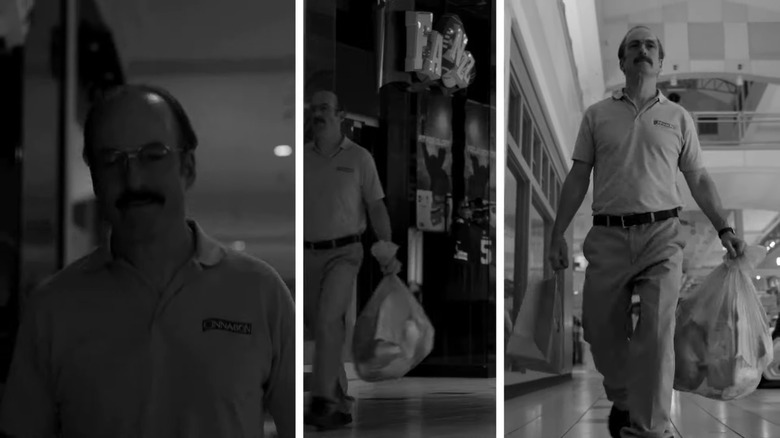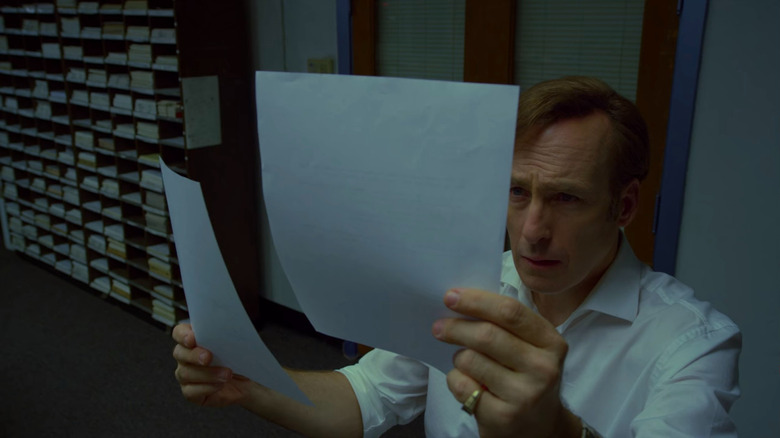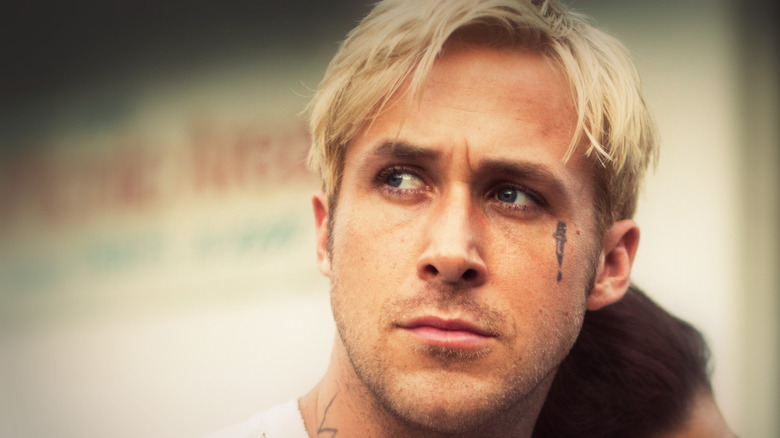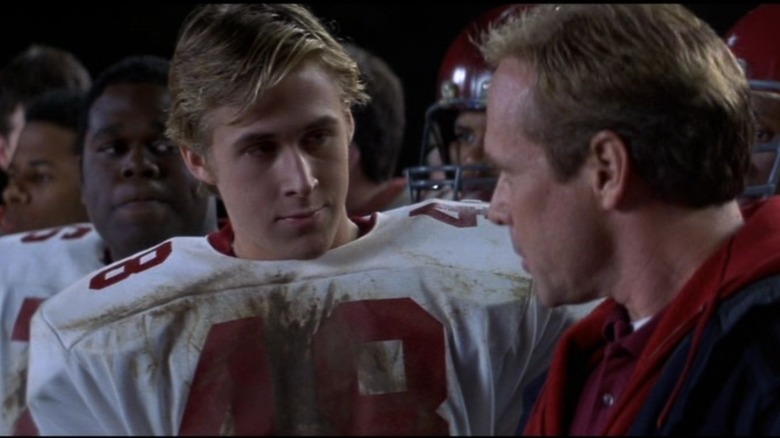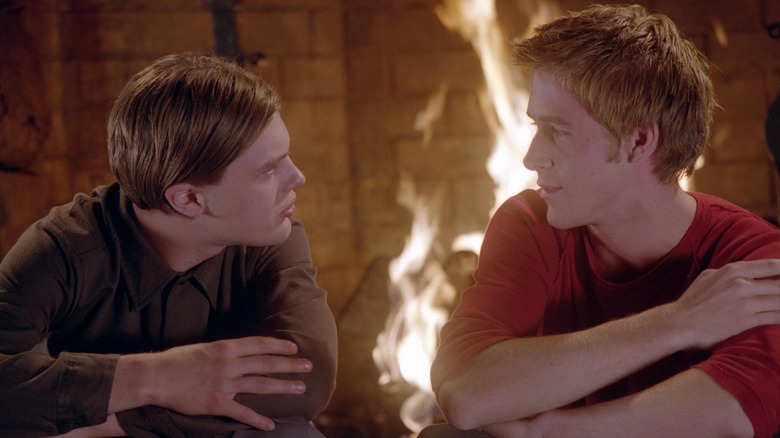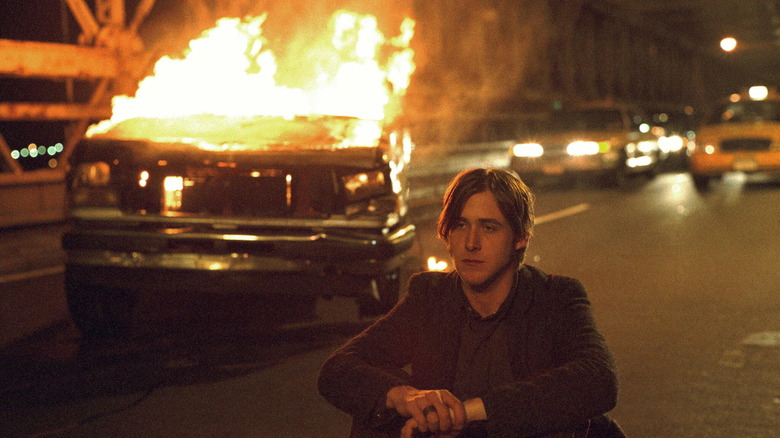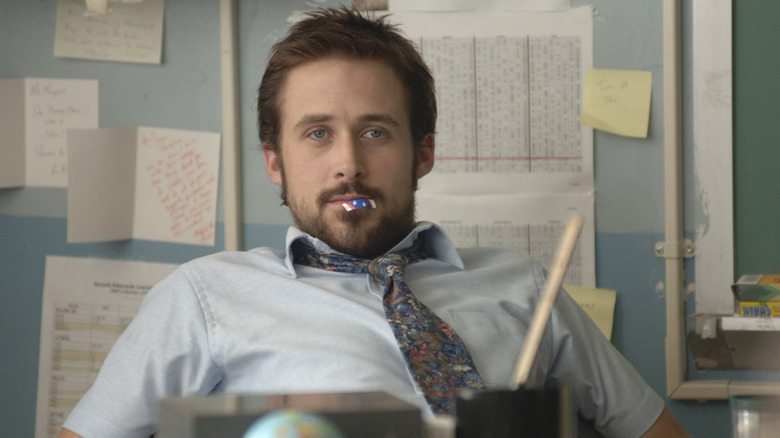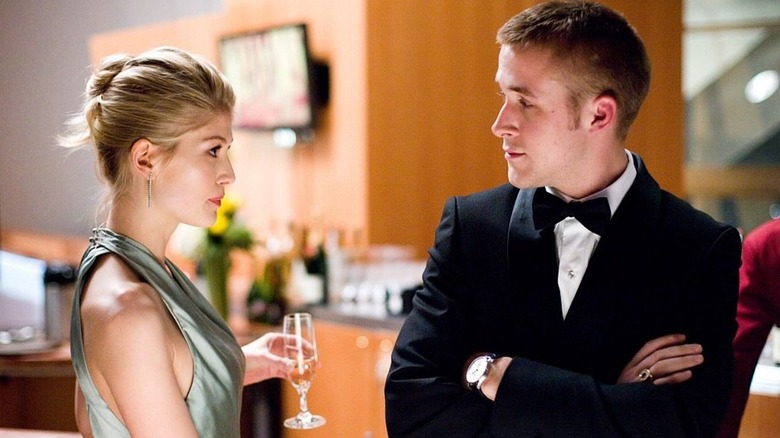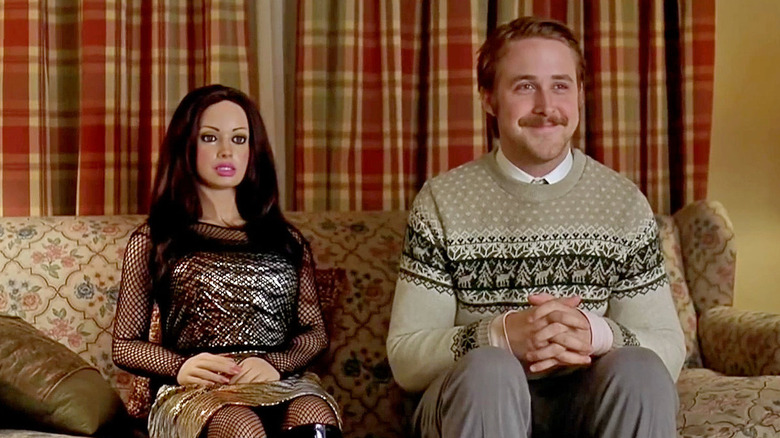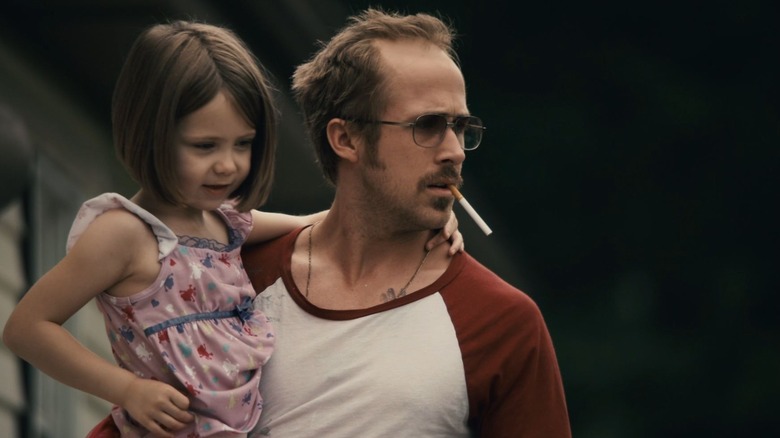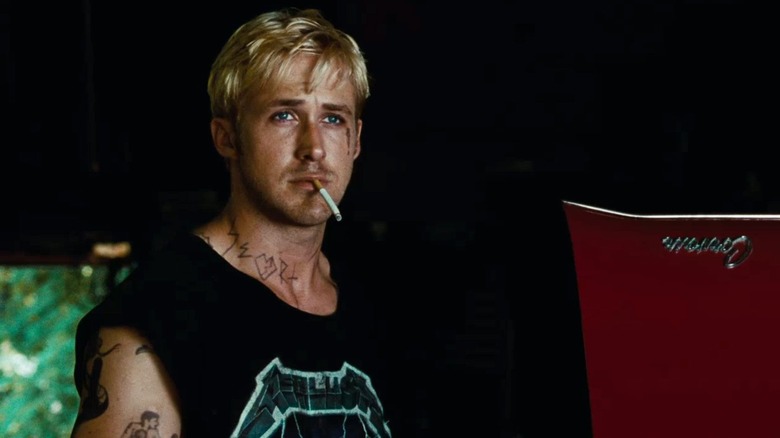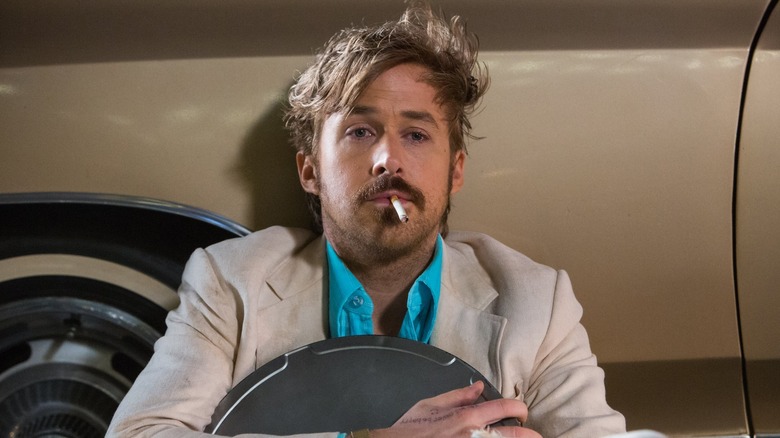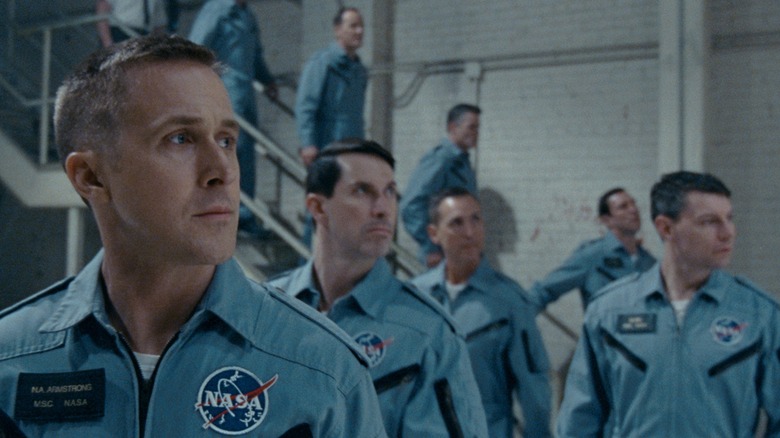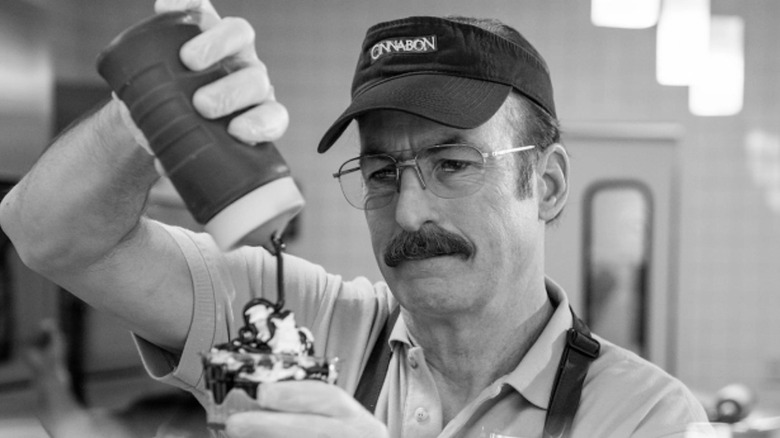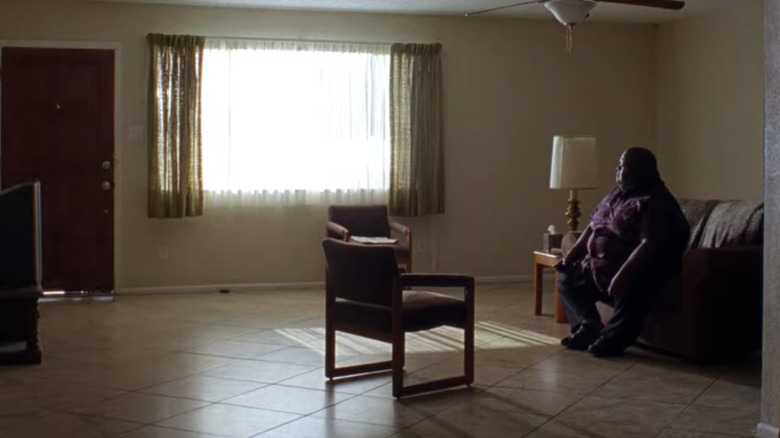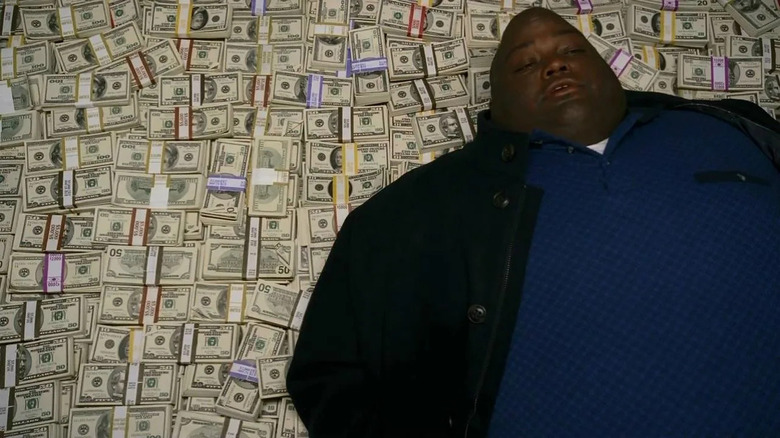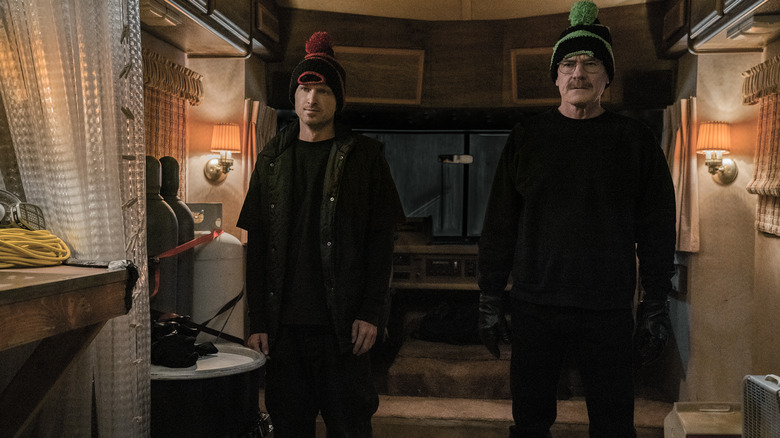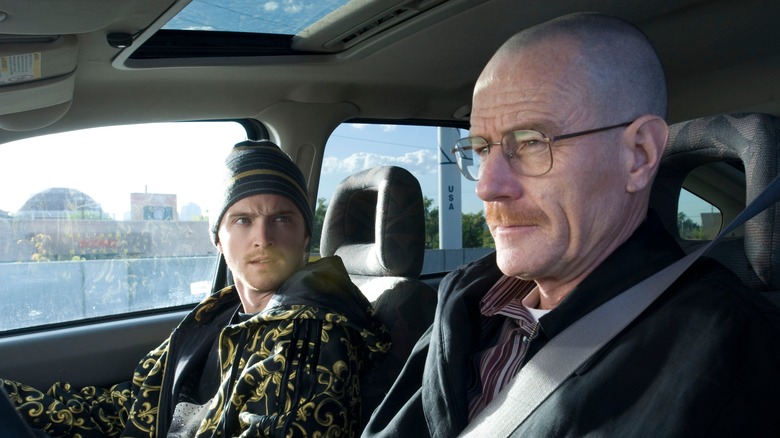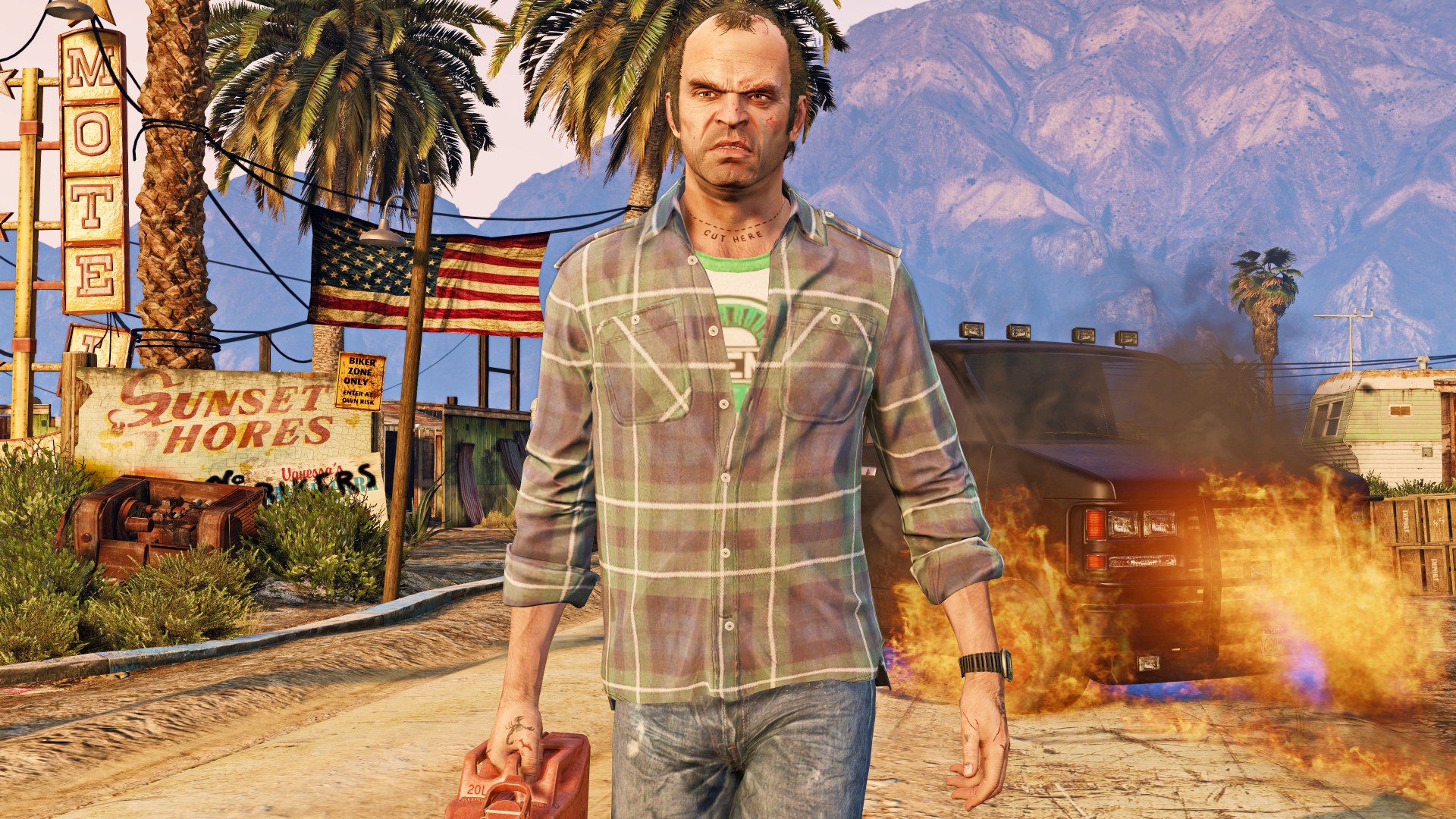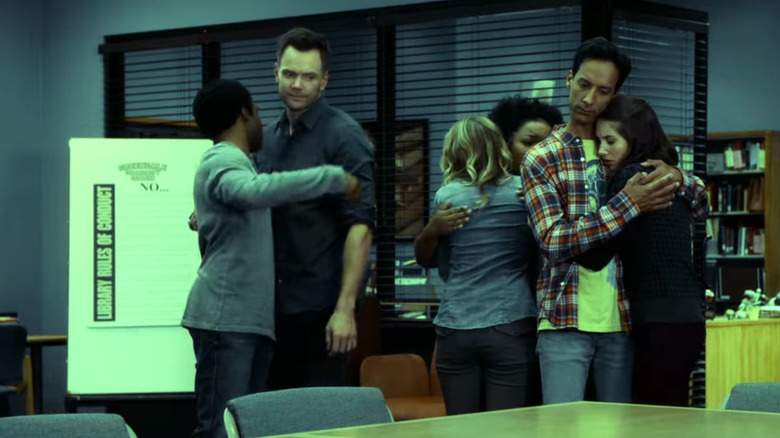
One of the best episodes of "Community" is season 5's "Basic Intergluteal Numismatics," a mystery episode parodying detective shows and David Fincher films. It's a spiritual sequel to season 3's "Law and Order" parody episode, except this time the study group isn't trying to figure out who killed their yam; they're trying to figure out the identity of the infamous Ass Crack Bandit.
That's right: there's a guy going around Greendale dropping coins in people's butts, and the episode treats his crimes with the seriousness a real-life serial killer would invoke. Whereas season 3's yam killer mystery was solved as more of a team effort, the case of the Ass Crack Bandit is mainly taken up by Annie (Allison Brie) and Jeff (Joel McHale), and the case is never solved. Annie and Jeff are about to catch the bandit when Shirley (Yvette Nicole Brown) shows up and breaks the tragic news: Pierce (Chevy Chase) has just died.
The show ends with no clear answer given, and even if that fabled "Community" movie ever gets made, it's not likely to contain an answer. That's because showrunner Dan Harmon never had a specific character in mind. When asked who the bandit was, he answered: "It was my job to make sure it could have been anybody, so I don't know."
Despite this, most fans' primary suspect is Annie, due to her suspicious behavior at the end of the episode, as well as her even more suspicious behavior in the series finale. However, there's a case to be made that any member of the study group could potentially be the culprit. Yes, even Troy. If you're willing to reopen this cold case with me, let's take another look at the evidence and see if we can solve this mystery once and for all.
Suspect #1: Annie
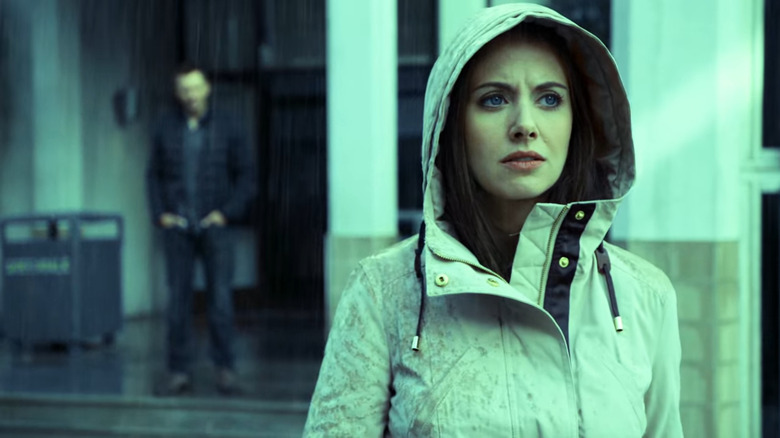
One piece of evidence against Annie is her final line in the episode. Jeff says, "I have a feeling he'll be back." Annie responds, "Or her." Then she freezes up a little, as if she just accidentally let something major slip. She and Jeff share a look that could be interpreted as Annie being scared Jeff will figure out she's the bandit, and Jeff suspecting her for the first time. It's not a great moment for those who insist Annie's innocent, but it's not exactly hard evidence.
The main piece of evidence comes in the series finale, when someone brings up the Ass Crack Bandit and Annie acts perhaps a little too dismissively. "Could've been anybody," she says with a nervous, evasive laugh. Jeff looks at her suspiciously yet again, but the moment's brushed aside.
But the key argument against Annie comes in the scene with her, Jeff, and the Dean, where the Dean demands to know what's actually going on between her and Jeff. The Dean gives his theory: Annie and Jeff are using this mystery as an excuse to channel their romantic feelings for each other into a socially acceptable outlet. As long as there's a mystery to be solved, Annie has an excuse to spend time alone with Jeff, where all sort of things can happen.
Maybe the bandit was in fact Annie all along. She's got the motive, after all. Her big theory in the beginning is that the bandit must be a teacher because the time frame in which the bandit pulled off a coin-spree required a shortcut, but we know from later episodes that she herself is capable of going in and out of the teachers' lounge without much pushback. Annie's not off the hook yet, as far as I'm concerned.
Suspect #2: Jeff
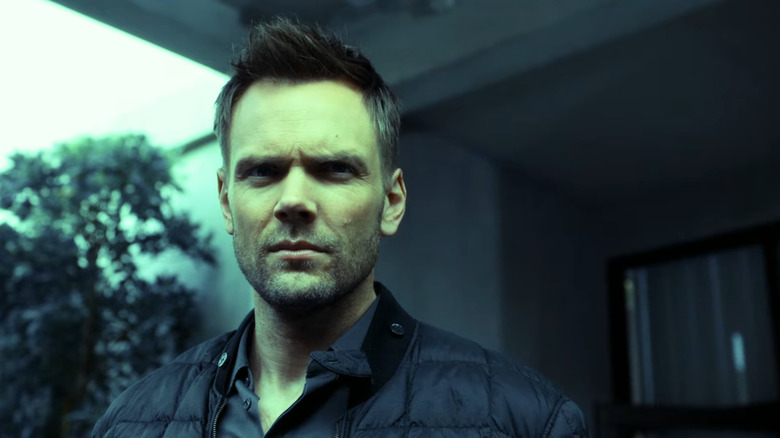
Let's propose another interpretation of the episode's final scene. When Annie says "or her," maybe she looks back at Jeff because she suspects him? After all, there's technically no way of knowing the bandit is a he, so why would Jeff make that assumption unless he knew something everyone else didn't? Instead of looking at this moment as Annie letting herself slip, maybe this was the moment where Jeff slipped?
Jeff's motive would be the same as Annie: he wants an excuse to spend more time with her alone. Yes, he acts like he's reluctantly going along with Annie in the beginning, but we've known Jeff long enough at this point to know that's just a front. He always pretends to be a reluctant participant because he thinks it makes him look cool and aloof, but secretly he longs to get in on the action.
Another piece of evidence: Jeff is a teacher, which means that he has unfettered access to the teachers' lounge. If it weren't for the fact that Annie trusts Jeff and has feelings for him, she probably would've placed him at the top of her suspects list for this reason alone. There's not enough evidence yet to convict Jeff in a court of law, but if he was in the room with you right now, would you really feel safe enough to bend down and tie your shoes?
Suspect #3: Britta
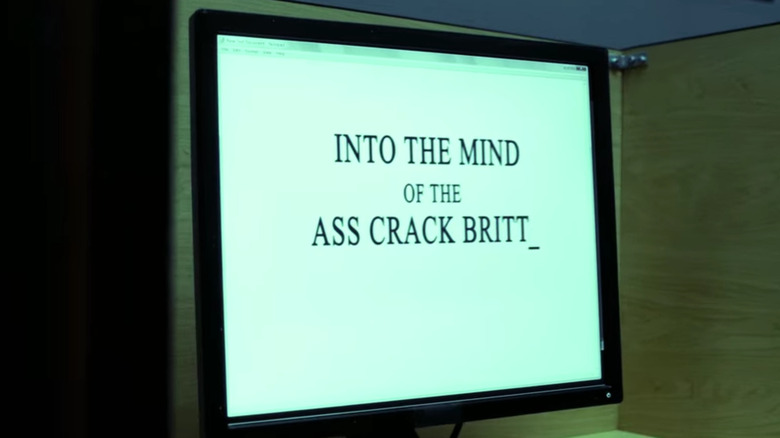
Although Britta isn't treated like a suspect throughout the episode, we see her at the end writing what looks like a psych report on the bandit. She accidentally writes "Britta" instead of "bandit," then quickly erases it. Was this simply a case of her "britta"-ing something yet again? Or could it have been a Freudian slip?
Like everyone else in the study group, Britta has multiple potential motives. Perhaps she's trying to make some sort of political statement; we know from previous episodes that she has a tendency of going about her activism in questionable, often counterproductive ways. Maybe the coin is supposed to be a metaphor for the government invading our civil liberties.
A more likely motive is that Britta is frustrated by the fact that no one takes her seriously like they used to. Season 1 Britta was the group's voice of reason, whereas by season 5 Jeff described her as "the group's airhead." In a season 6 episode where the group's trying to figure out if a dog got a degree at Greendale, Britta wishes the rumor will turn out to be true. "They all treat me like I'm a joke," she says, "But if a dog got a degree, that means we're all a joke."
Perhaps years of humiliation have turned Britta into a spiteful person, someone who would stoop to any lengths to humiliate Greendale. And what could be more embarrassing for the school than being the home of the Ass Crack Bandit?
Suspect #4: Shirley
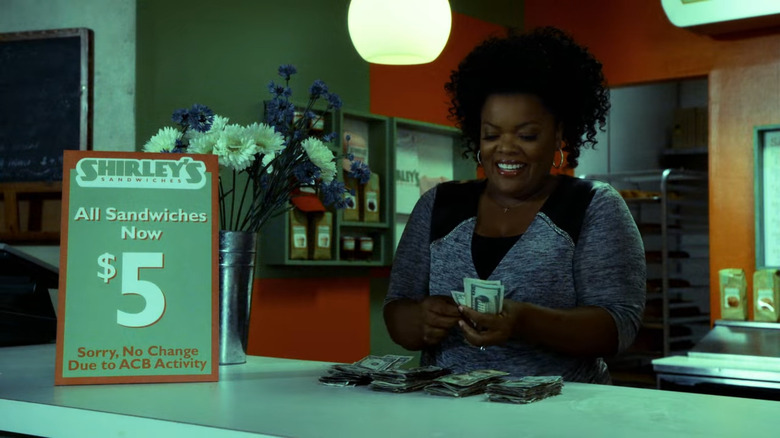
The closing montage provides us with a clear motive for Shirley being the bandit: change being banned from Greendale means she makes more money from her sandwich business. However, let's consider the more damning piece of evidence: Jeff and Annie are chasing the bandit down an empty corridor and who do they find? Shirley, exactly where the bandit would've been. "The hallway led to a dead end," Annie says later in the episode. "We might've had him."
When they find Shirley there, she tells them Pierce has died, which instantly makes them forget about their pursuit of the bandit. How ... convenient. If Shirley hadn't hit them with that game-changer news, they probably would've started suspecting her.
Now, I'm not saying for sure that Shirley murdered Pierce to throw Annie and Jeff off the trail; I'm just saying that we never actually figure out how Pierce died, and Pierce's will does state that in the event of his death, every member of the study group is a potential murderer. We also know that Shirley and Pierce have never particularly gotten along. We also know from the later episode "VCR Maintenance and Educational Publishing" that Shirley has the capacity to act like a cold, calculated criminal when it meets her needs.
We also know from "App Development and Condiments" that she's absurdly concerned about her image, not afraid to engage in sociopathic behaviors to keep her five-star rating intact. With that in mind, it makes sense that she would resort to extreme lengths to prevent the truth of her bandit crimes from coming to light, as it would forever destroy her beloved reputation.
Suspect #5: Abed
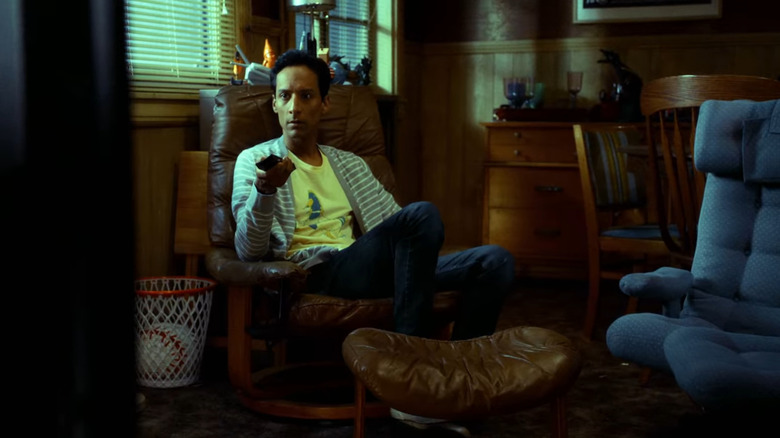
Abed's love of film and TV -- and his occasional inability to distinguish them from reality -- has gotten him into trouble sometimes. In season 1 he wanted to make his life a mafia movie, which resulted in him creating a whole criminal empire. In season 2, he believed everyone in the world was made up of claymation, and he made Britta cry when she tried to snap him out of this. In season 3 he tried to cut off Jeff's arm.
Abed isn't inherently evil, but we know he's capable of harming people without realizing it. It's possible that Abed was trying to live out his own David Fincher movie, and creating a quasi-serial killer was the best way for him to live the fantasy out.
We also know that Abed is surprisingly athletic; in season 1 he was able to beat former high school quarterback Troy in every physical competition, most notably running. Maybe Abed doesn't have easy access to the teacher's lounge like Jeff, but he may be the only member of the study group fast enough to pull the coin spree off without using that shortcut.
Lastly, we know that Evil Abed exists, and he's capable of taking over Abed's body at nearly any point. The Abed we see throughout the episode may not act guilty in any way, but maybe this wasn't the version of Abed in control at the time of the bandit's crimes.
Suspect #6: Pierce
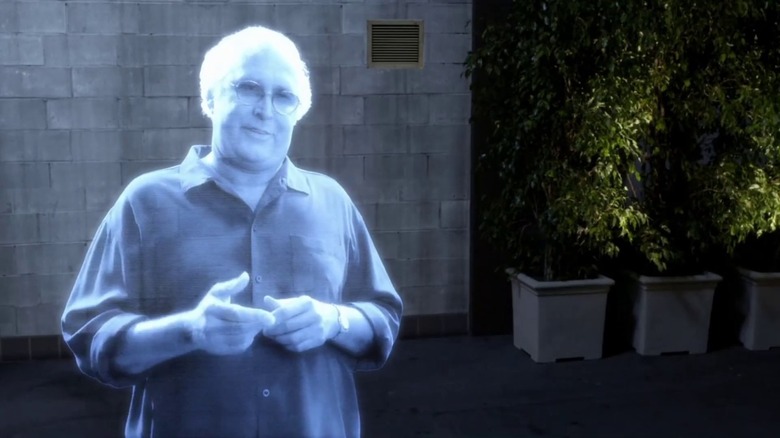
Pierce (Chevy Chase) tends to be excluded from the list of suspects because, well, he wasn't in the episode. By that point, he had already been replaced by Buzz Hickey (Jonathan Banks), the only main character who we can safely assume is not the bandit. (You can't convince me that Hickey would ever muster up enough energy to even bother with this sort of crime.) Then of course there's the fact Pierce dies at some point in the episode (potentially by Shirley's hands?).
Then again, consider this point: after Pierce dies, the Ass Crack Bandit never strikes again. Isn't that a little strange? If the bandit was never caught, what would stop them from striking a few months down the line? Surely it can't be a coincidence that the bandit's crimes died along with Pierce, right?
The motives for Pierce are endless. At the time of his death he was banned from campus, and seemingly estranged from the rest of the study group. We know from the next episode, "Cooperative Polygraphy," that Pierce is still capable of being just as petty and conniving as he was during his villain arc in season 2. Until new evidence comes to light, Pierce is still on the suspect list.
Suspect #7: Troy
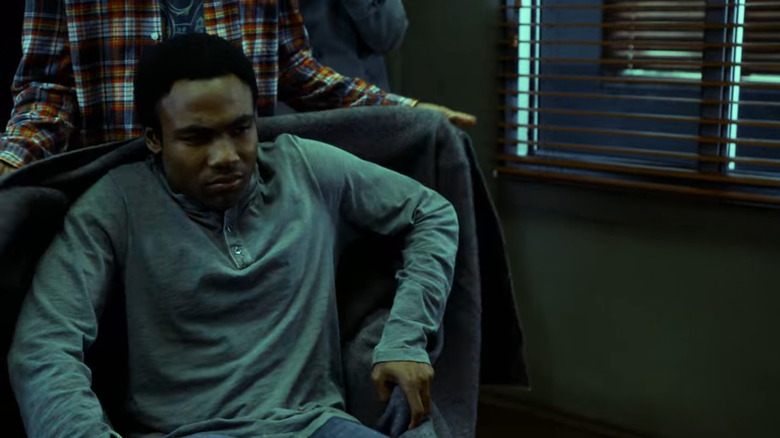
At first glance, Troy seems like the last person you'd suspect. He is, after all, an early victim of the bandit's heinous crime. He spends the episode a shell of his former self, having to be taken everywhere in a wheelchair, wrapped in Abed's comfort blankets. Troy seems deeply traumatized by what happened to him, from beginning to end. But there's just one problem with this: Troy is famously a big fan of butt stuff.
In season 1 when Annie asks Troy to join a psych experiment, Troy asks "Do they do stuff to your butt?" When Annie says no, a mildly disappointed Troy says, "It's fine, I'll do it." When he's coming on to Annie in "Romantic Expressionism," he tells her excitedly, "I think you know I have a thing for butt stuff." In "Contemporary American Poultry," Abed makes a board with everyone in the study group's likes and needs, information Abed uses to bend the group to his will. Right up on the top of Troy's list of likes is "butt stuff." In "Cooperative Calligraphy," Troy gets excited over the idea of being excited by a potential cavity search. Obviously consent is a major factor here, but based on Troy's behavior throughout his five seasons of the show, does his reaction in this episode not feel a little ... suspicious?
There is one major piece of evidence that seemingly excludes Troy from the suspect list, however: we saw the mysterious bandit standing in the same room as him. We know for a fact that he was legitimately cracked. So how, in that case, could Troy have been the bandit?
The Two Bandit Theory
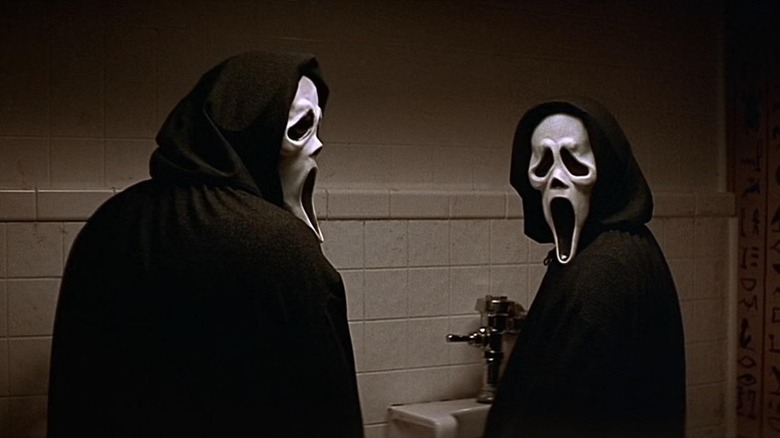
Fans of the "Scream" franchise and certain Agatha Christie novels are aware of the concept of a two killer reveal. It's a good plot twist because it takes pieces of evidence that would seemingly exonerate a specific suspect and casts it in a whole new light. A character being away from the scene of the crime is now no longer enough to exclude them from the suspect list.
Likewise, the existence of two bandits working together ties together a lot of threads that don't quite add up here. How could Pierce be the killer if Professor Duncan got cracked right before Shirley broke the news of his death? Because maybe he and Shirley were working together, and Shirley killed Pierce prior to her final heist. Why was Professor Duncan acting so suspicious with Annie if he wasn't the bandit? Well, maybe because he was one of the bandits, and whoever cracked Duncan did so as part of their plan to take the heat off him. (After all, Duncan's excuse for needing to tie his shoes was questionable to say the least.)
If there are two bandits, which I believe there are, that makes pretty much every member of the study group still on the table as a potential suspect. It does, however, erase certain pairings.
Some Process Of Elimination
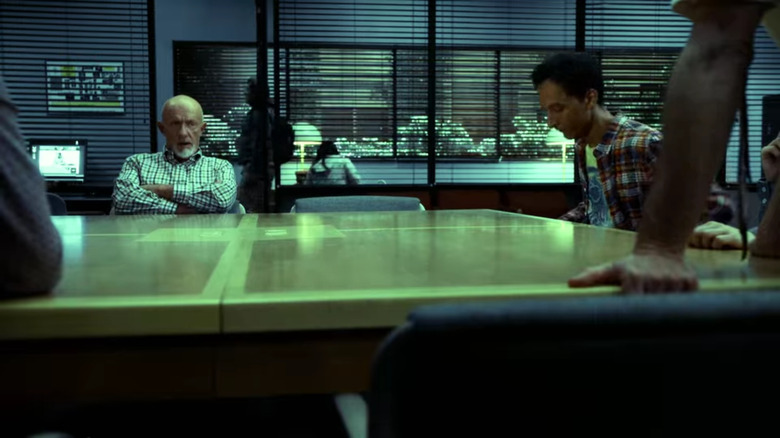
We know that the bandits can't be Jeff and Annie, because there'd be no reason for them to both play dumb while they're alone together. We also know it can't be Jeff and the Dean, or Annie and the Dean, because the three were in the same room together when the bandit called them. Likewise, a pairing of any character in the bleacher scene is off the table now. Any combination of the Dean, Troy, Vicky, or Garrett isn't possible. Annie and Professor Duncan (John Oliver) also can't be working together, because then their scene near the end wouldn't make sense.
In fact, the scene with Annie and Duncan actually exonerates Annie completely. Because if she was the killer, or working with the killer, there'd be no reason for her to be so scared of Duncan. There's no one else in the room with her to witness her behavior, so it's not like she'd have to fake suspicion for someone like Jeff's sake.
In the end, I think it's pretty clear that whoever the two bandits are, Duncan is one of them. Throughout the episode he plays the same roles as Billy Loomis in the first "Scream," seeming so obvious a pick for the culprit that you'd assume he'd have to be a red herring. We find out early in the episode that the bandit went on a hiatus during the same period Duncan was away, we find out Duncan's also a Dave Matthews fan, and he was acting incredibly suspicious in his scene with Annie. The only hard piece of evidence exonerating him was him getting cracked at the end, but the two bandit theory renders that evidence irrelevant. So if Duncan is bandit #1, who's Bandit #2?
More Elimination
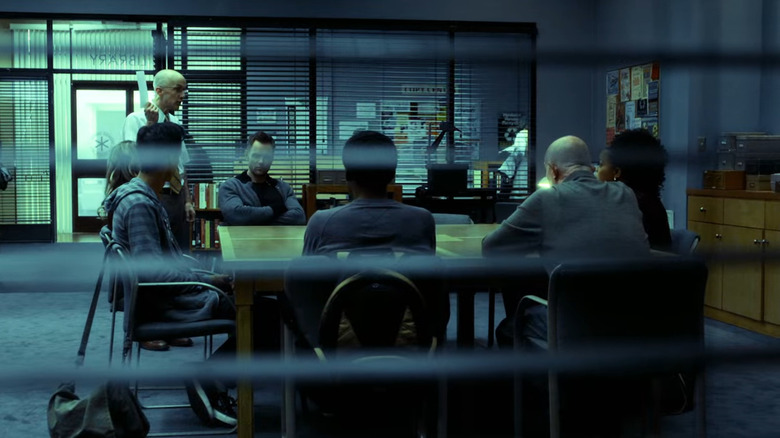
One explanation is that Britta and Duncan were working together. Bonded by their interest in psychology, they created their own legendary figure so they could make money writing a paper about him, which we see Britta starting in the final montage. This doesn't quite work though, because we've seen throughout the rest of season 5 that he and Britta are never particularly familiar with each other, despite Duncan's desire to seduce her.
Another explanation is Pierce and Duncan. Pierce has been a student at Greendale for over a decade, so it's certainly possible the two characters have a history with each other the audience hasn't been privy to. However, because Pierce was dead (or pretending to be dead) at the time Duncan gets cracked, this pairing isn't likely. Jeff and Duncan also doesn't work, because Jeff was with Annie during the final scene too.
There's also the Dean, but I'm not buying it. He may have been against Annie and Jeff's investigations, but that was part of his larger motivation of trying to avoid any more bad press. As much as his stonewalling inadvertently helped the bandit, there's simply no real motivation for the Dean to take part in these scandalous crimes.
That leaves Troy, Shirley, and Abed as potential second bandits. But at this point, Troy's still expected to be in a wheelchair, so it would be difficult for him to pull off the final crack. There's no technical reason why Shirley couldn't be the killer, but she lacks a strong motive. We know she doesn't have any unique relationship with Duncan, and it's not clear how taking part in this scheme would improve her popularity, which we know is more important to her than money. That leaves only one suspect left.
The Actual Mastermind
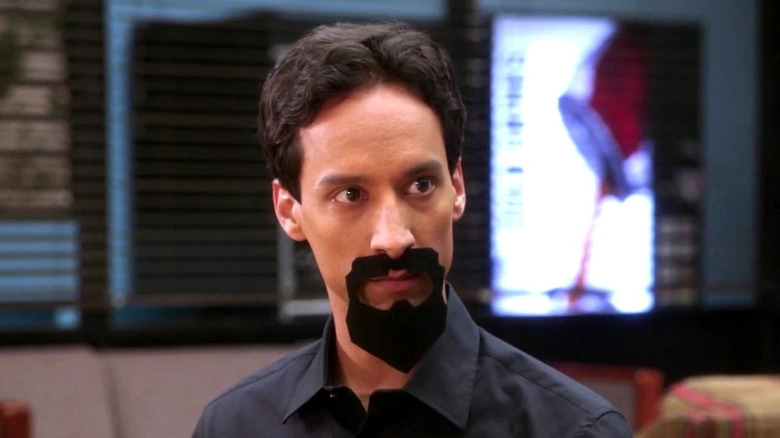
Ask yourself which member of the study group knows Troy best. Who would know exactly which stuffed animal to leave on the floor that would incite Troy to pick it up? Who would best know exactly when Troy would be alone in the study room? Why'd he have all those blankets already on hand to comfort Troy in the aftermath?
Nearly every time "Community" has a special episode parodying some genre of TV/film, Abed's at the center of it. Even when another character's the center of the episode, like with Jeff's "G.I. Joe" hallucination later in season 5, Abed still serves as a vital character connecting Jeff back to the real world. The last time "Community" did a detective-themed episode, Abed was smack dab in the middle of the investigation. Here, he's strangely absent, seemingly uninterested. It might seem out of character until you realize that it's all an act. He's the real mastermind behind everything that happens.
He's the only character with both the motive and the means to pull everything off with Professor Duncan. He's someone who knows his friends so well he can predict their every move, and someone with a history of forgoing ethics in the name of creating a good story, be it in real life or as part of a film he's making. "It's not called friend business," Abed once said early in season 1, when Britta called him out on manipulating his friends' emotions. "It's called show business."
For the sake of the poor, traumatized victims of the Ass Crack Bandit over the years, we should've listened sooner. We can only hope he'll be caught in the possible, eventual movie. The devastation he and Duncan wreaked can never be undone, but maybe justice can still prevail.
Read this next: The 13 Best Comedy Shows On Amazon Prime Right Now
The post Dan Harmon Doesn't Have An Answer To Community's Biggest Question appeared first on /Film.




